Late Night With The Devil Ending Explained: Exploring What It All Meant
The greatest trick the devil ever pulled was convincing you he wasn't real...but was he?
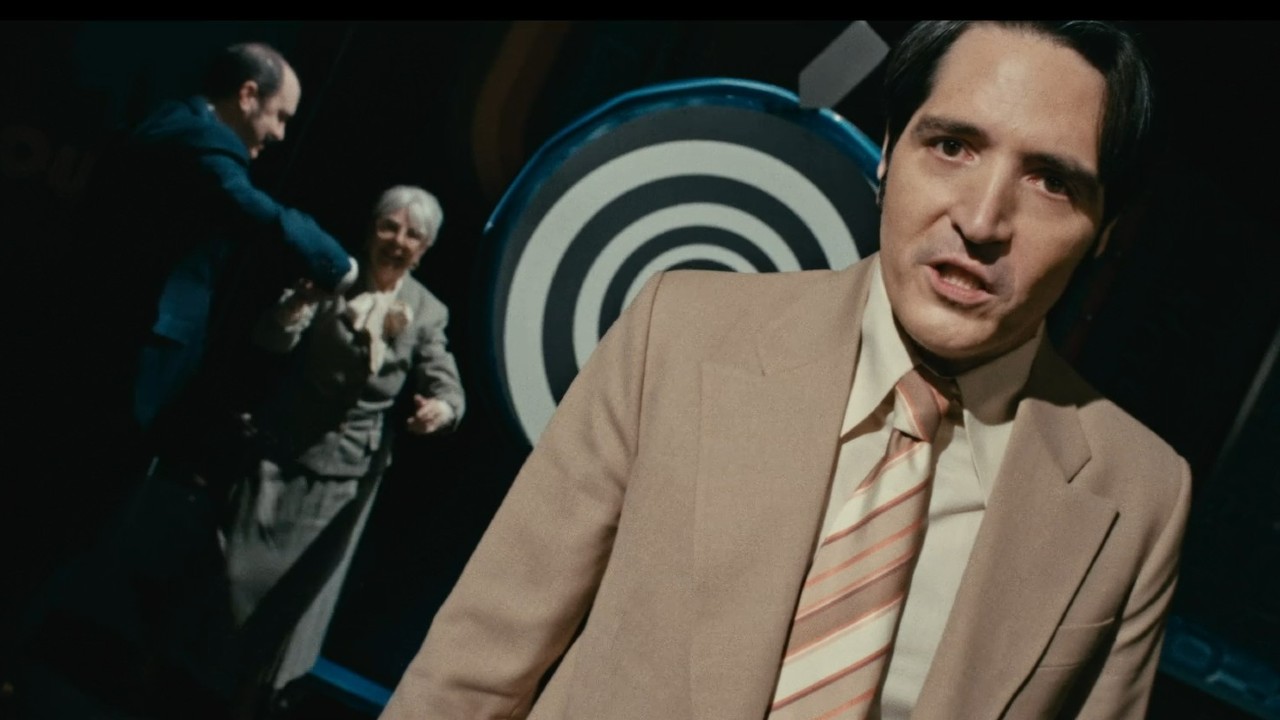
Impressively, Late Night with the Devil captures the feel and look of ‘70s late-night talk shows. Its style and storyline make it one of the most interesting horror movies of the last decade. Only time will tell where it ranks among the best horror films of all time, however, it certainly leaves an impression. The Late Night with the Devil ending is haunting, fascinating, and confusing in the most delightful way.
This leaves us plenty of questions to ponder. It explores the darkness of ambition, fame, devotion, and suppressed grief, and gives you options. It has enough depth for multiple possible readings of it. So, let’s talk about Jack Delroy (David Dastmalchian), his demons, and the Late Night with the Devil ending.
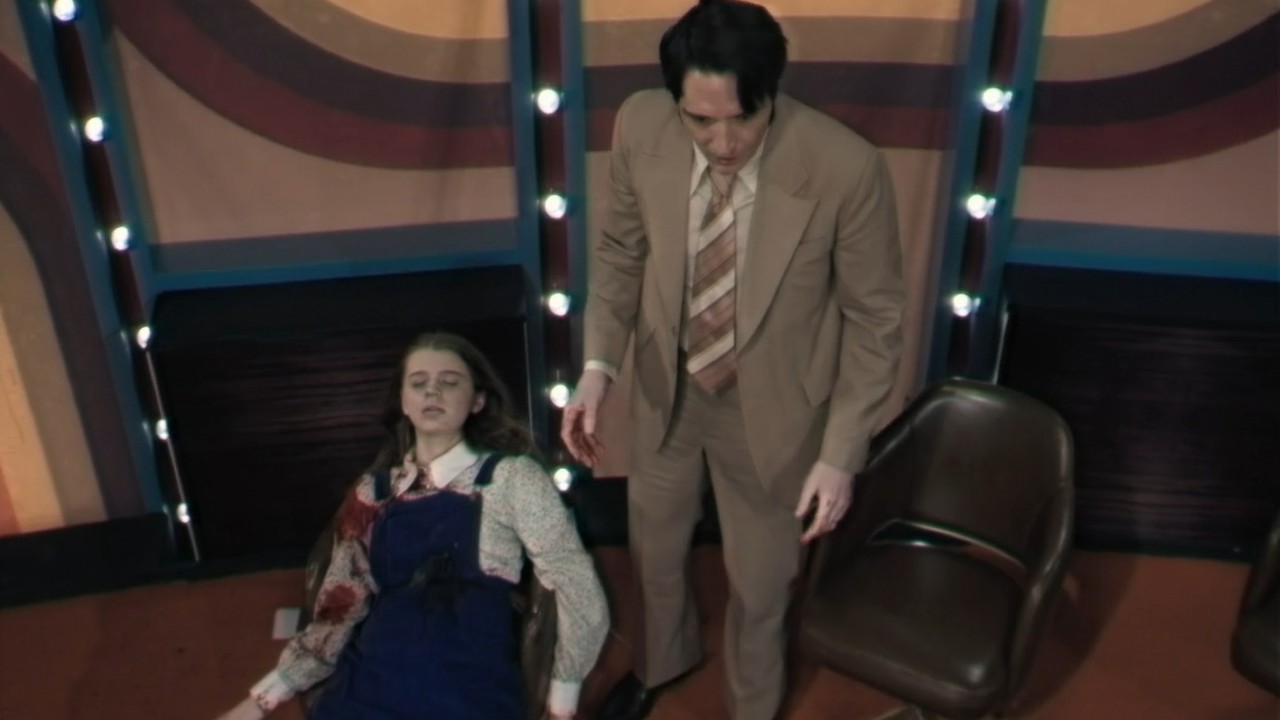
What Happened At The End Of Late Night With The Devil
Jack, Dr. June (Laura Gordon), Carmichael (Ian Bliss), and Lily (Ingrid Torelli) rewatch the footage of Lily’s possession to prove that it was real and not hypnosis. It triggers the demon inside Lily again. She loses control and kills Carmichael, June, and Gus (Rhys Auteri). Jack then enters a hellish loop of past segments. Eventually, it turns into him signing a new contract with his station, which then morphs into him with The Grove, his studio audience, and D’Abo (Steve Mouzakis).
That then opens the door to his wife Madeleine (Georgina Haig) on her deathbed. She confronts him about his part in her death. Then begs him to end her misery and stop the pain. He takes a ritual dagger and stabs her. This brings him back on stage where he holds a stabbed Lily. We hear police sirens in the background as Gus, June, and Carmichael’s bodies also surround him.
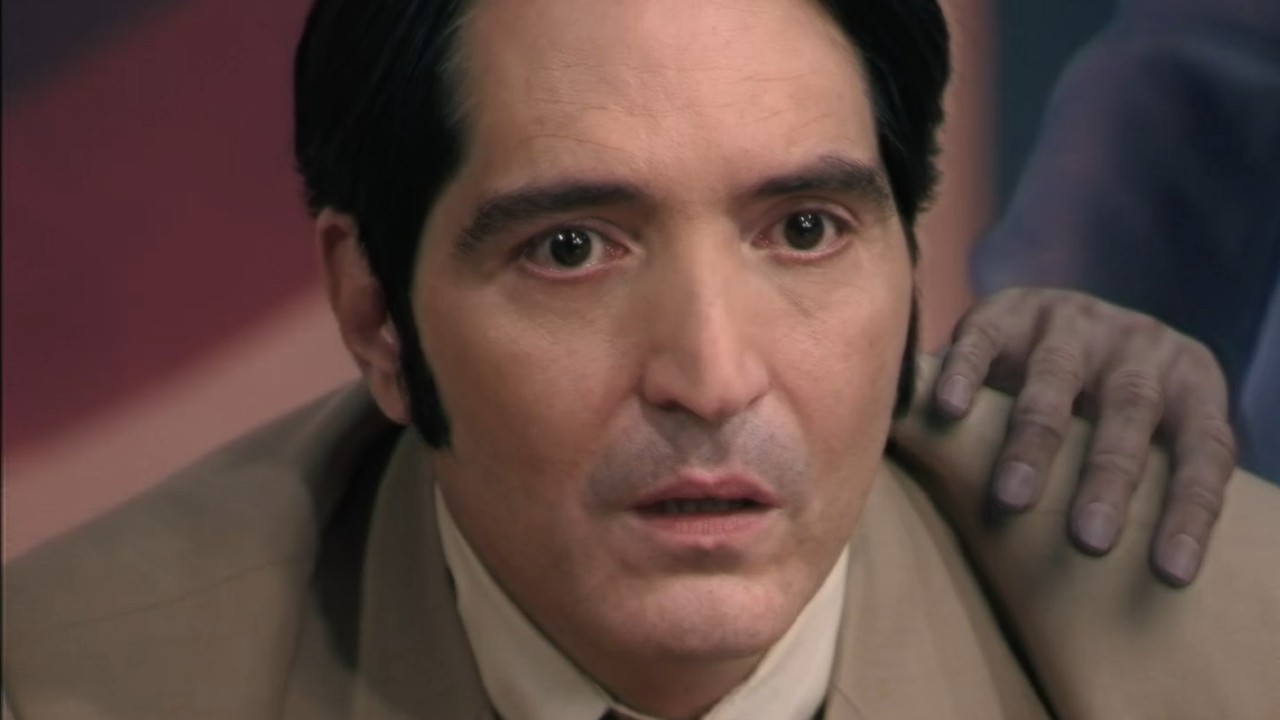
Possible Meaning 1: The Demon Has Taken Over Jack’s Life
Let’s explore the possibility that the ending happens as we see it. Lily’s loss of control over her demon results in Jack entering a state of possession as well. The demon takes over his mind and sends him into a hell loop. It tortures Jack with memories, then kills Lily, either by accident, due to the mind control, or as part of the demon’s plan to grant Jack’s wish for success. He gets it horrifically.
This ending brings The Grove out front and directly connects Jack’s relationship with the group to the death of Madeleine, and now June, Gus, Lily, Carmichael, and Christou (Fayssal Bazzi). The reveal that Jack made a sacrifice that caused Madeleine’s death isn’t a surprise. Late Night With the Devil foreshadows it throughout.
At the beginning, the narrator talks about rumors of The Grove, Jack’s secret society group, practicing satanic rituals. Then Lily’s demon implies that they met before during one of these rituals. It mentions meeting him amongst the tall trees. This alludes to an incident with Jack and The Grove.
Your Daily Blend of Entertainment News
We may see this ritual when he begins his loop. Madeleine seemingly confirms it when she accuses him of sacrificing her for his fame. This action, though likely not intentional, leads to her death. It’s implied he didn’t know that the bargain he made would cause Madeleine’s cancer. His dream of success comes true when he creates one of the most shocking, infamous episodes on television. The final scene implies Jack either goes to prison or remains trapped in a mental prison. Both outcomes are most likely true.
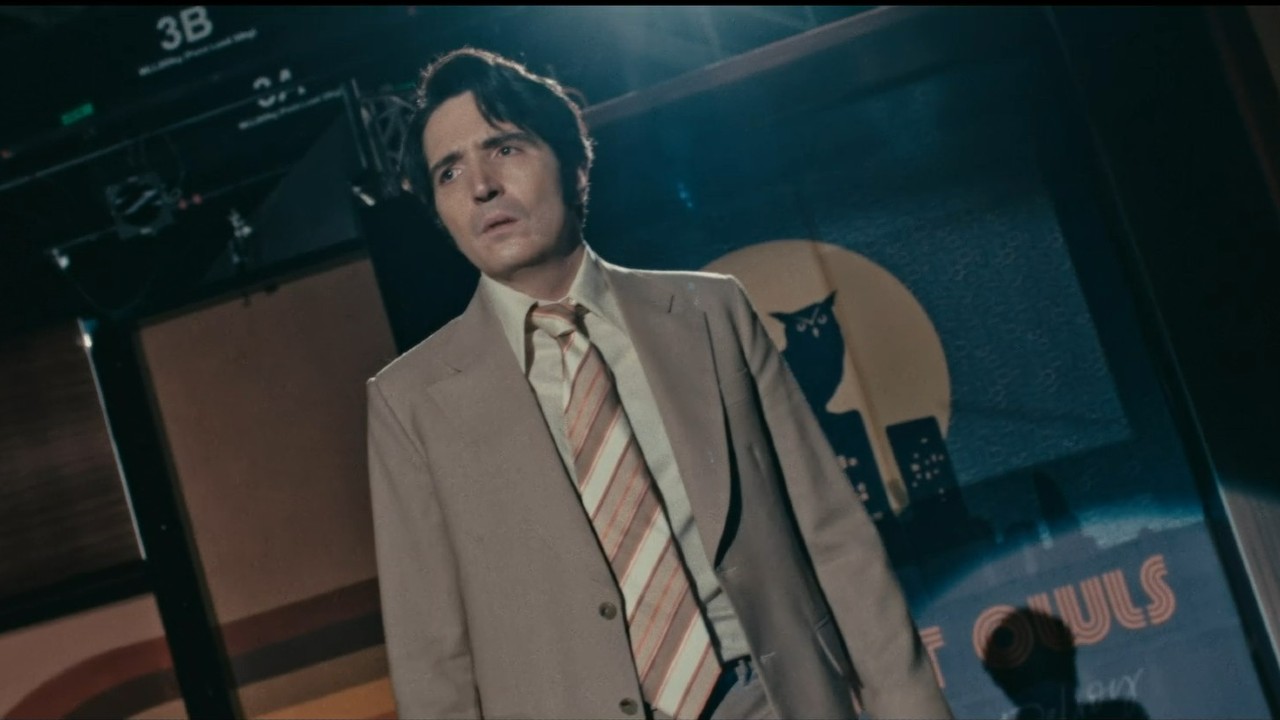
Possible Meaning 2: Jack Has Gone Mad
The story we witnessed may not be 100 percent true. In fact, none of it may happen as it unfolds on Late Night with the Devil. I believe the beginning that starts as the documentary is real. However, we never hear the end of it.
Some of it may really happen, like Lily and Dr. June being guests, but, maybe everything doesn’t play out as sensationalized as we see it. Maybe we’re viewing the whole movie from inside Jack’s mind. This is how the Night Owls episode plays out in his head. However, if the film did reintroduce the narrator to conclude the documentary, it may state that Jack lost his mind and went on a killing rampage shouting about demons and his dead wife. The documentary could conclude like many great true crime documentaries and great true crime TV series: with a twist.
This Night Owls episode could be infamous not for the real demons but because of Jack’s violent and shocking acts on live television.
Though we see Jack behaving in a cool, calm, and collected way throughout the show, he’s still dealing with grief, being overworked, and pressure from the network to deliver. He’s a man very close to losing it all.
There is a possibility that Carmichael speaks facts. The show could have orchestrated his wife’s fake ghost appearing to drum up ratings since the previous episode with her was the most-watched episode of Night Owls. This incident could trigger Jack’s full mental breakdown.
Both possibilities could be true because they reach the same conclusion: how far someone is willing to go for success and how that breaks them.
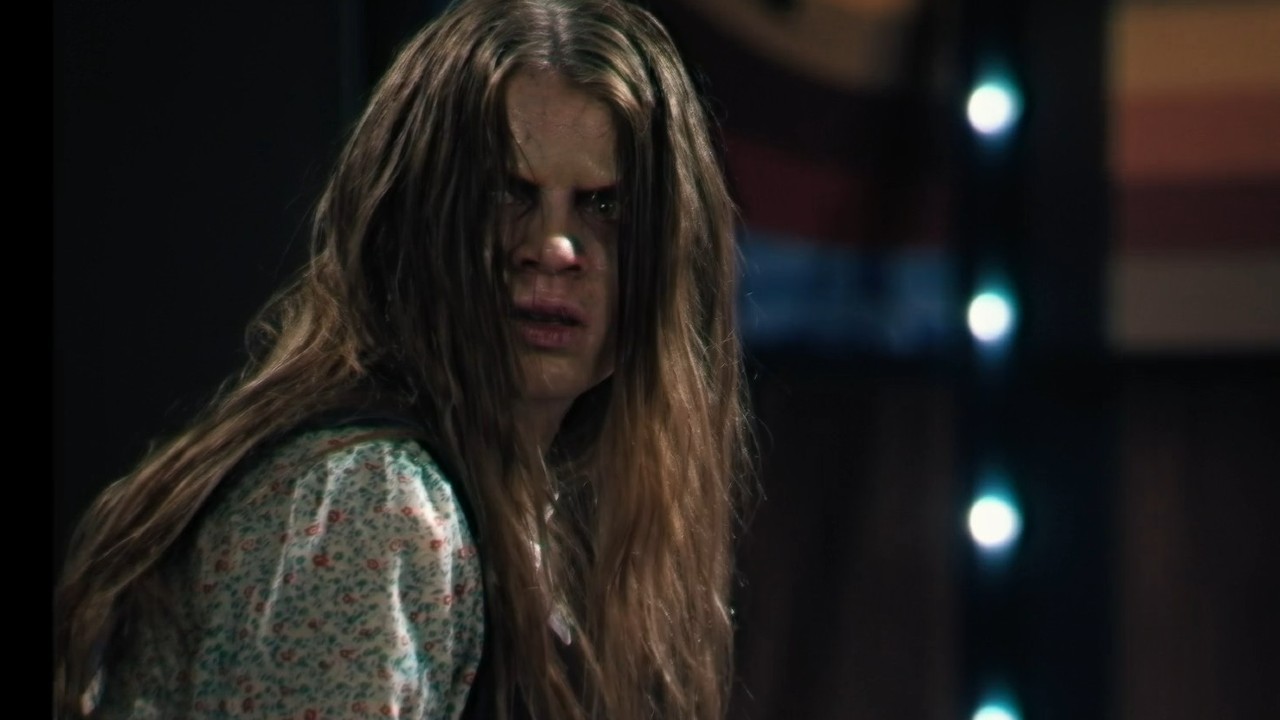
Digging Deeper With Demons And Devils
One of Late Night With the Devil’s most standout quotes comes from Lily. To paraphrase, she says everyone has demons. She’s just better at controlling hers. Demons come in literal and metaphorical forms here.
The demon inside Lily is the most outwardly scary, but Jack’s inner demons are the most threatening. Guilt and ambition are the two most dangerous for him. His quest to be the most popular late-night talk show host costs him everything. His reputation, his wife, and eventually his own life. He may survive the night, but not really, because he’s going to prison and fully traumatized.
His guilt over his wife’s death is probably the driving force that brings her to Night Owls on Halloween. In a Variety interview, Dastmalchian offers his perspective on Madeleine’s appearance. He thinks it may be rooted in love and anger:
I think Madeline has always loved Jack even as the ambitious, driven workaholic — because that’s part of his makeup. But he pushed it too far.
Jack feels guilty for whatever part he plays in her death. Even if he didn’t really sacrifice Madeleine with The Grove, his guilt may lie in neglecting her because of his career. It could be because she got lung cancer and he’s a smoker, or it could be because he does assist in her death.
The dagger death scene likely doesn’t happen as shown in Jack’s hell loop, but maybe she did ask him to ease her pain by doing something that helps her die, such as taking her off life support, providing her with pills, or even something as intense as suffocating her or lethal injection.
A death by suicide story is a prominent part of the Christou segment, and maybe that means nothing or maybe it’s there to haunt Jack for helping Madeleine choose to end her suffering. If Jack has done a ritual that caused her death, his deep-rooted guilt haunts him.
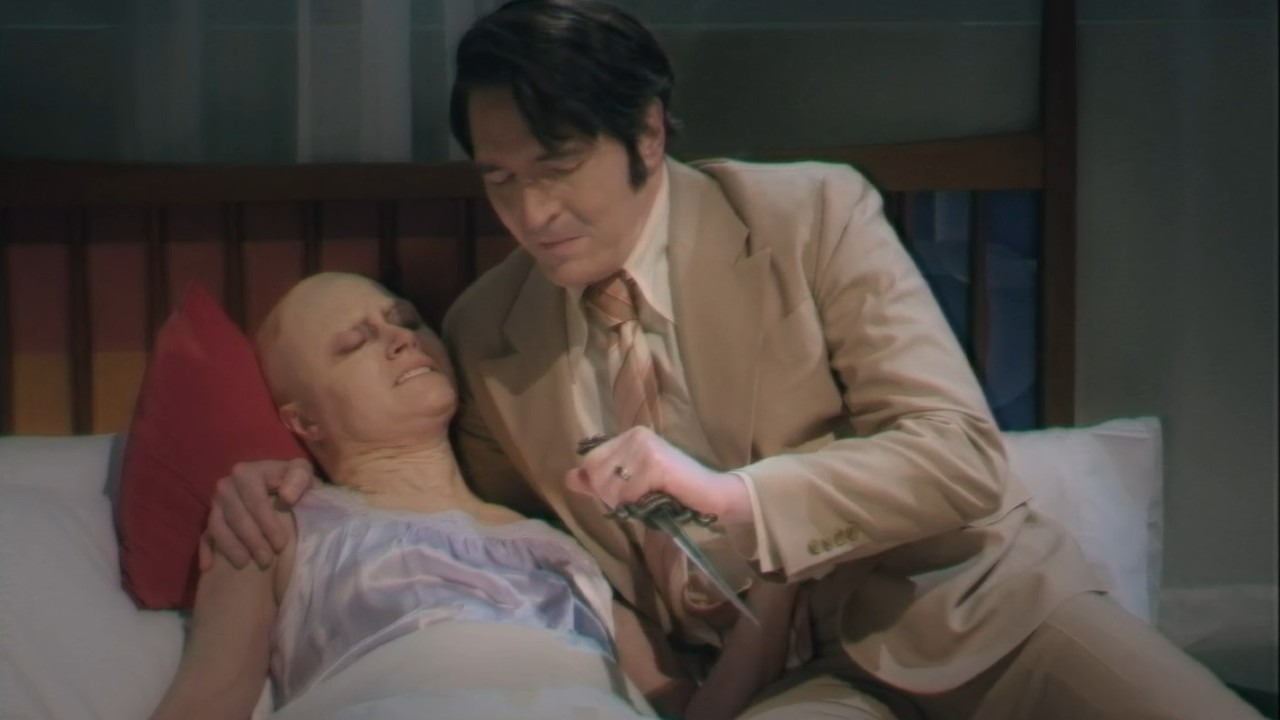
Jack’s Sacrifice In Late Night With The Devil
Another interesting quote is said by D’Abo. To summarize, he says good and evil don’t exist. Only desire exists and how you try to achieve it. This sums up Jack. He’s a morally gray character led by his desire for success.
In a MonsterFest interview, Late Night with the Devil directors Colin and Cameron Cairnes mention Jack’s moral grayness as being a nod to some of the main characters from the best 70s movies. He literally brings the devil to his audience to win Halloween sweeps.
It doesn’t matter if Jack is having a mental breakdown or if real demonic activity happens because he sacrificed his wife in some way. He’s grappling with the reality that his actions and behavior led to her demise.
He also sacrificed his own life to please us, the viewers. He begs us to turn away. This symbolizes his wanting to escape his imprisonment of having to cater to an audience. He can’t let us go and we can’t let him. This ends with him fully sacrificing his life and future to win us over.
Late Night with the Devil leaves room to fill in blanks as we see fit. This amplifies the intense and fascinating experience of the movie.
You can see more of what David Dastmachian had to say about the film in CinemaBlend’s exclusive interview.
Rent/buy Late Night with the Devil on Amazon.

Spent most of my life in various parts of Illinois, including attending college in Evanston. I have been a life long lover of pop culture, especially television, turned that passion into writing about all things entertainment related. When I'm not writing about pop culture, I can be found channeling Gordon Ramsay by kicking people out the kitchen.
